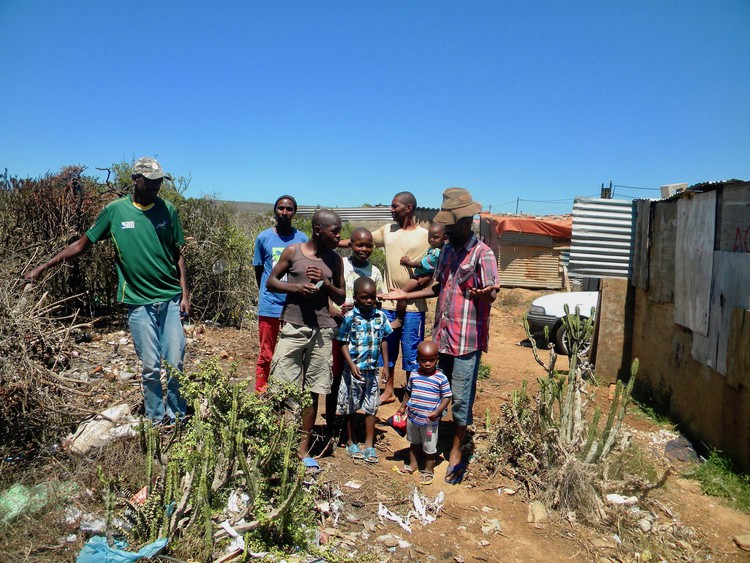Qunu residents desperate to relocate
Informal settlement has no services and a road will soon be built through it
‘We want to negotiate with the municipality in a peaceful manner. We have had many protests, but we are now fed up with that. We expect a peaceful engagement with them. At the same time, the municipality should also deliver on its promises,” said Simpiwe Mjeleza, a community leader in Qunu informal settlement in Port Elizabeth.
Wedged between two newly built residential areas, Chatty Extension and Booysens Park, Qunu consists of about 60 shacks, some shared by more than one family. The settlement was established about three years ago. Residents live without basic services: no water and no electricity. And now, they also have to deal with a proposal for a new road to be built cutting through their shacks.
Mjeleza, who is 46 and unemployed, said he and his family relocated in 2014 from Chatty Extension to Qunu Informal Settlement, hoping to get a house. “Houses were being built in Chatty Extension 1060,” he said. “Most of us were not working, so it turned out to be an opportunity for us to get employed at the sites where construction of these houses was done.
“Unfortunately, I did not get a house, despite being on the waiting list for many years. We held many protests in an attempt to draw the attention of the municipality. It seems those protests yielded nothing, because little has been done to give us houses or move us to a better area where there are better services.”
Mjeleza said, “This area is a disaster in waiting. I have three children who are very young. There are no toilets here. In one of our meetings with the officials from the Nelson Mandela Bay Municipality we asked them to supply us with the bucket system, but they have not.”
“To make it even worse, we don’t have water taps in this community. We fetch water from other areas. This is very dangerous, because women are often sexually molested by criminals who hide in these bushes.”
Mjeleza said residents are angry and their situation has now been made worse by the construction of a road that will run through the settlement. “This is the final straw. We will not stand in the way of development because this road will bring jobs and services to everybody. Our only appeal is that the mayor should explain to us where they are going to resettle us because we want to avoid a situation where bulldozers would be used to destroy our shacks like what happened in Wells Estate recently.”
Nomhle Mgibe, 44, said she and her family also moved to Qunu three years ago. “We had high expectations that we were going to benefit from this massive housing project. We thought by coming closer, we would easily benefit, but it seems all was in vain.”
“We have had several cases of snakes invading our shacks. We also lack basic services. We don’t have a clinic nearby. The only primary school, Alphonso Arries, is full and cannot take more learners. We don’t have money for their transport to travel to other schools in the metro.”
Mgibe said: “I am prepared to be relocated to a better place, because this place is not fit for human settlement. We are living in the middle of the bush. There is also no privacy as we sleep in the same shack with our children and other elder family members.”
Mgibe is married but shares her one-room shack with her four children and her disabled, 31-year-old brother, Ayanda. Mjeleza said the new road “is the final straw”.
Mayoral Committee Chairman for Human Settlement Nqaba Bhanga, who came into office after the local elections in August 2016, said, “Yes, I know the situation in Qunu Informal Settlement.”
Bhanga said, “I had a meeting yesterday [16 February] with the people of Qunu and we will have another one soon to resolve their grievances. I can confirm that construction of a road that passes through the settlement has been temporarily stopped. Work will only resume after the results of the meetings with the community of Qunu.”
Support independent journalism
Donate using Payfast

Don't miss out on the latest news
We respect your privacy, and promise we won't spam you.
© 2017 GroundUp. 
This article is licensed under a Creative Commons Attribution-NoDerivatives 4.0 International License.
You may republish this article, so long as you credit the authors and GroundUp, and do not change the text. Please include a link back to the original article.

